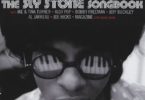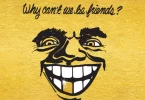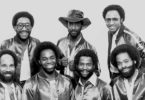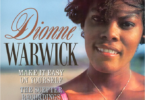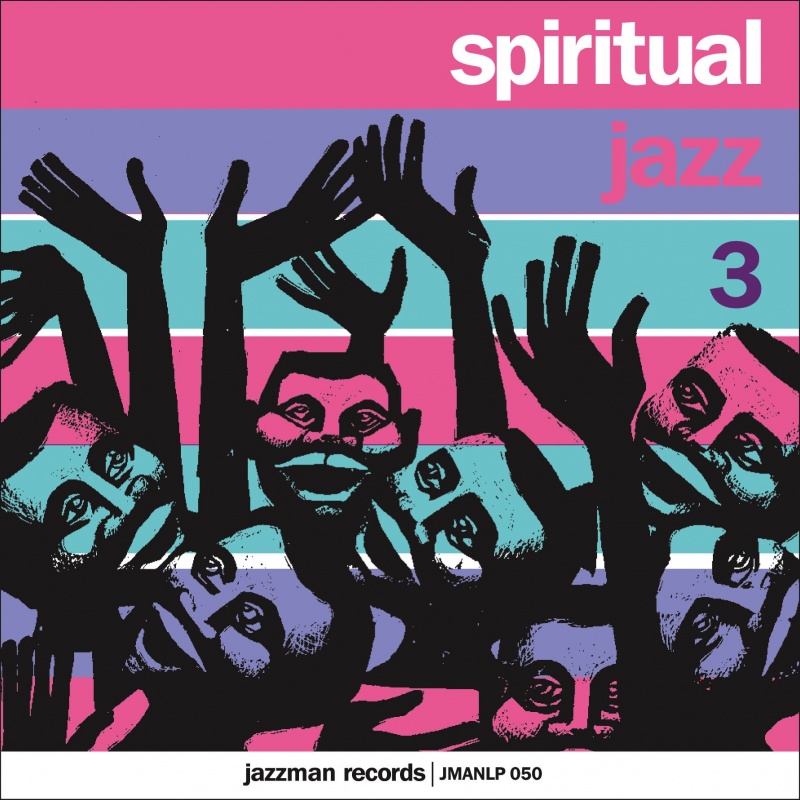 Le label anglais Jazzman Records vient de publier le 3ème volet de sa trilogie consacrée au Spiritual Jazz. Ce nouveau CD compile habilement des morceaux d’artistes européens (Jef Gilson, That’s Why, Albert Mangelsdorff Quintet Dusko Goykovich) et des pièces plus obscures comme « Le Temps » de Michel Roques enregistrées entre 1962 et 1973.
Le label anglais Jazzman Records vient de publier le 3ème volet de sa trilogie consacrée au Spiritual Jazz. Ce nouveau CD compile habilement des morceaux d’artistes européens (Jef Gilson, That’s Why, Albert Mangelsdorff Quintet Dusko Goykovich) et des pièces plus obscures comme « Le Temps » de Michel Roques enregistrées entre 1962 et 1973.
Tracklisting
01. Jef Gilson – Unknown
02. Hermann Gehlen – Kyrie
03. Palle Mikkelborg & Radiojazzgruppen – Mongolia
04. Michel Roques – Le Temps
05. Babs Robert – Pro Forma I
06. That’s Why – Udoyeleg
07. Binder Quintet – Vasvirag
08. The Crescendo Quintet – Variations On The Azerbajian Mugam ‘Chargiakh’
09. Dusko Goykovic – Macedonian Fertility Dance
10. Albert Mangelsdorff Quintet – Sakura Waltz
11. Yoki Freund Sextet – Aisha
12. Jan Allan Quintet – Odins Oga
13. Dennis Wiley – Barrio Chino
14. Full Moon Ensemble – Samba Miaou
15. Louis Xavier – Suite
16. Antithesis
Communiqué de presse officiel en anglais
London’s ever-impressive Jazzman Records delivers the third volume in their immensely popular Spirtual Jazz series, this time with; Spiritual Jazz 3: Europe – featuring the likes of Jef Gilson, That’s Why, Albert Mangelsdorff Quintet, and Dusko Goykovich.
At the end of the ‘50s, Miles Davis’ Kind of Blue heralded the revelatory arrival of modal jazz. As the vibrations of these giant steps resonated across the world, European jazz musicians reassessed their bearings and began to steer a new course. Across the continent they sent roots down into the rich soil of the European folk and Christian liturgical traditions, extended their music along ancient routes of communication and trade to the Middle East, and reached across the crumbling ramparts of the European empires to the music of Asia Africa and Latin America.
The music collected here follows the richly tangled threads of meditative, modal and religious European jazz. Picking up where Spiritual Jazz 2: Europe left off, with volume 3 continuing the excavation of private releases, underrepresented artists and visionary one-offs that stud the European jazz landscape like standing stones. Just as it had waxed, so the cult of American jazz waned, and these recordings are the compelling documents of a musical world in imaginative transition and virtuoso transformation – a second trail of determined footprints on the pathways of European jazz.
Sublime choral jazz in an ecclesiastical setting, revolutionary sounds deep within the USSR, radical modal experiments inspired by excursions to Asia and Latin America, advances in rhythm and sound where modern jazz combines with Balkan and Scandinavian folk traditions. This is Spiritual Jazz – European style.



